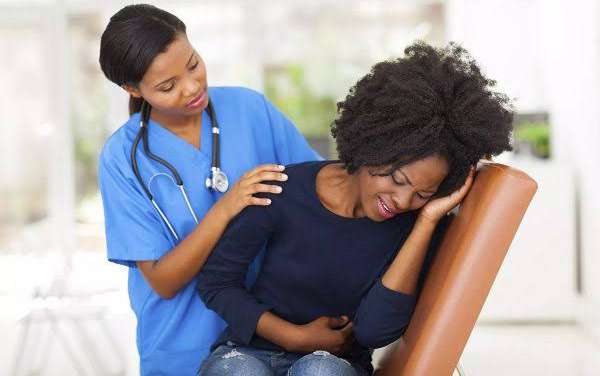Menstruation is a natural process that occurs in women, but for some women, it can be a painful experience. Menstrual pain, also known as dysmenorrhea, is caused by the contraction of the uterus as it sheds its lining. The pain can range from mild to severe and can last for several days.
There are several factors that can contribute to menstrual pain, including hormonal imbalances, endometriosis, and fibroids.
Hormonal imbalances– It can cause an overproduction of prostaglandins, which are hormone- like substances that cause the uterus to contract.
Endometriosis– It occurs when the tissue that lines the uterus grows outside of the uterus, causing pain and inflammation.
Fibroids– These are non- cancerous growths that can develop in the uterus and cause pain and discomfort.
Medical Ways To Overcome Menstrual Pain

Over- the- counter pain relievers: Nonsteroidal anti- inflammatory drugs (NSAIDs) such as ibuprofen, naproxen, and acetaminophen can help alleviate menstrual cramps. These medications work by blocking the production of prostaglandins, which are hormone- like substances that cause the uterus to contract. It is important to follow the recommended dosage and to consult with a healthcare provider if there are any concerns about taking these medications.
Hormonal birth control: Hormonal birth control methods such as the pill, patch, or IUD can help regulate periods and reduce the severity of menstrual cramps. These methods work by preventing ovulation and reducing the production of prostaglandins. It is important to discuss the options with a healthcare provider to determine the best method for individual needs.
Prescription medications: In some cases, prescription medications such as anti- inflammatory drugs and muscle relaxants may be necessary to relieve menstrual pain. These medications should only be taken under the guidance of a healthcare provider.
Natural Ways To Overcome Menstrual Pain:

Applying heat: Applying heat to the abdomen can help ease menstrual cramps. A heating pad, warm towel, or hot water bottle can be used to alleviate pain. Heat works by relaxing the muscles and increasing blood flow to the area.
Exercise: Exercise can help reduce menstrual pain by releasing endorphins, which are natural pain relievers. Low- impact exercises such as walking, yoga, or swimming can be effective in reducing menstrual pain.
Herbal remedies: Herbal remedies such as ginger, chamomile, and cinnamon can help alleviate menstrual cramps. These herbs have anti- inflammatory properties and can help reduce pain and discomfort. It is important to consult with a healthcare provider before using herbal remedies as they may interact with other medications.
Relaxation techniques: Getting enough rest and reducing stress can also help reduce menstrual pain. Relaxation techniques such as deep breathing, meditation, or massage can help reduce stress and promote relaxation.
It is important to consult with a healthcare provider if menstrual pain is severe or interfering with daily activities. There may be underlying medical conditions that need to be addressed. In some cases, surgery may be necessary to treat conditions such as endometriosis or fibroids.
Source:
Mayoclinic

